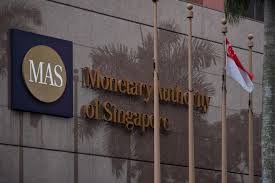Following the recent failure of cryptocurrency fund Three Arrows Capital, a high-profile victim of the global digital currency crisis, Singapore’s ambitious cryptocurrency sector, by some metrics Asia- Pacific’s largest, faces an unclear future.
Players in the financial hub of Southeast Asia are preparing for more bankruptcies and legal disputes and anticipate that the Monetary Authority of Singapore (MAS), whose hospitable attitude helped to draw companies from China, India, and other countries, may become less friendly.
Hoi Tak Leung, a senior technology sector lawyer at Ashurst, stated that it is likely that the MAS will become stricter regarding cryptocurrencies and digital assets in light of recent developments.
According to KPMG, investment in Singapore’s blockchain and cryptocurrency startups increased tenfold in 2021 to $1.48 billion, accounting for roughly half of the region’s total investment.
In stark contrast to China’s ban, an Indian cryptocurrency tax that has crippled trade, and upcoming laws in Hong Kong that would only allow professionals to invest in cryptocurrencies, regulators at the MAS have stated that they seek to stimulate the provision of crypto-related services.
Only a small number of the more than 150 crypto businesses which sought a new crypto payments license from the MAS in 2020 have so far been granted one.
However, the situation has become more complicated with the collapse of Three Arrows Capital (3AC), which started liquidation proceedings in the British Virgin Islands on June 27 after being unable to fulfill hundreds of millions of dollars worth of obligations due to the global decline in digital currencies, according to court filings.
Kyle Davies and Zhu Su, the fund’s founders, were not reached for comment, and 3AC’s liquidators informed a US bankruptcy court that they are unable to find them.
The financial instability that followed 3AC’s bankruptcy had immediate and severe repercussions. Vauld, a Singapore-based cryptocurrency loan, and trading platform, announced last week that it would halt withdrawals. The next day, a competing crypto lender announced its intention to buy Vauld.
According to court records that aren’t publicly accessible, another fund, Mirana, is suing 3AC in Singapore over a loan deal, local media said. When contacted for comment, Mirana did not respond.
Days after 3AC failed on a crypto loan worth $650 million that it was owed, cryptocurrency lender Voyager Digital filed for bankruptcy in the United States. Additionally, cryptocurrency exchanges Genesis and Blockchain.com have acknowledged losses in their interactions with 3AC.
According to Rose Kehoe, managing director of Kroll’s restructuring practice in Singapore, she anticipates that in the upcoming weeks, cryptocurrency-related businesses experiencing liquidity problems would make use of Singapore’s court protection provisions for corporations undergoing restructuring.
The contagion effect of recent market events will continue to have an influence on cryptocurrency markets worldwide, especially in Singapore, a significant cryptocurrency hub, she predicted.
Players in the sector are also concerned about possible regulatory responses from Singapore.
According to Jeff Mei, chief marketing officer at ChainUp, a Singapore-based cryptocurrency company, “other nations in (Southeast Asia) could follow suit” if Singapore decides to take a more antagonistic stance toward crypto enterprises in the future.
“This could create a space for Hong Kong to more completely enter the fray.”
MAS declined to comment on the situation, but on June 30 it criticized 3AC publicly for breaking fund regulations and said it was looking into whether there had been any other violations.
According to Hagen Rooke, a Singapore-based lawyer at the law firm Reed Smith, “I believe (MAS) intended to send a signal to the sector to say, “3AC was already on our watch list.” According to him, such transgressions are typically dealt with by wrapping the knuckles in private.
He continued, “The concern is whether the MAS will become even more draconian in its approach to the crypto economy,” citing additional regulations on crypto lending and borrowing as one possible regulatory emphasis.

















